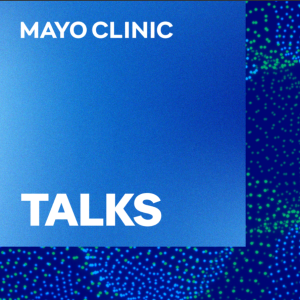
This is one of the papers from our 2017 Annual Conference. Information and the full conference booklet can be found at www.britishphenomenology.org.uk
Phenomenology entered the field of cognitive sciences in the early 90s of the 20th century (Varela 1993). Since then, several proposals for introducing phenomenology to the cognitive sciences have been produced e.g. front-loaded phenomenology (Gallagher 2003), formalization of phenomenological description (Marbach 2010), neurophenomenology (Lutz & Thompson 2003). In my paper, I would like to propose another approach, namely non-reductive theoretical integration with mechanistic explanations.
Mechanistic explanations are applied widely in life sciences especially in biology (e.g. Craver & Derden 2013). However, in recent years there have been attempts at introducing mechanistic thought to cognitive sciences (e.g. Bechtel 2008, Craver 2007) including an attempt to mechanistically explain consciousness (e.g. Oizumi et al. 2014). I will argue that this attempt is doomed to failure due to its phenomenological naivety. However, it can be improved by incorporating a phenomenological approach.
In my paper, firstly, I will discuss the background of practicing phenomenology in the cognitive sciences. Secondly, I will characterize mechanistic explanations and show why the mechanistic naturalization of consciousness will fail if it refuses to incorporate phenomenology. Then, in order to prove that phenomenology can be integrated with mechanistic explanations, I will argue for a new reading of Husserlian phenomenology, namely that it can be read as a kind of functionalism. The main objective of Husserlian phenomenology was to give adequate descriptions of the functions of consciousness. Furthermore, phenomenologically described functions of consciousness are congruent to some extent with a mechanistic approach - they are autonomous, multi-level, and decomposable. Finally, I will argue that phenomenological practice can be inspiring and deliver explananda to researchers working on mechanistic explanation of consciousness.
More Episodes
Jakub Kowalewski - Levinas and the Deformalisation of Time
 2018-07-18
2018-07-18
 303
303
Anna Yampolskaya - Aesthetical experience as tranformative: Henry and Maldiney on Kandinsky
 2018-07-11
2018-07-11
 245
245
O. Bader and A. Peri-Bader - The Presence of Others and the Constitution of Extraordinary Architectural Space
 2018-07-04
2018-07-04
 194
194
Jonathan Tuckett - The Cartesian Meditation of Pneuma: the Dasein of a Video Game Character
 2018-06-27
2018-06-27
 236
236
Zeigam Azizov - A Temporal Order of Things: Husserl’s ‘temporal objects’ and the (Industrial) Temporalisation of Consciousness
 2018-06-20
2018-06-20
 365
365
Mariam Shah - Typical Criminals: A Schutzian Inspired Theoretical Framework Exploring Type Formation and Potential Application in Magistrate’s Courts in England
 2018-06-13
2018-06-13
 241
241
Niall Keane - Affective Demonstration and Speaking Communally: The Practice of Rhetoric
 2018-06-06
2018-06-06
 216
216
Lillian Wilde - The Minimal Self in the Face of Trauma: Practical Applications of Phenomenological Theory
 2018-02-26
2018-02-26
 398
398
Edmund O’Toole - Phenomenology and Psychiatry
 2018-02-19
2018-02-19
 387
387
Luis Aguiar de Sousa - The Lived Body as ‘Tacit Cogito’ in Merleau-Ponty’s Phenomenology of Perception
 2018-02-12
2018-02-12
 528
528
Mary Edwards - The Phenomenological Foundations of Sartre’s ‘Human-World Realism’
 2018-02-05
2018-02-05
 352
352
Matt Barnard - Two Concepts of Anxiety: Heidegger and Sartre on Freedom
 2018-01-29
2018-01-29
 562
562
Ashley Woodward - Lesson of Darkness: Phenomenology and Lyotard’s Aesthetics
 2018-01-22
2018-01-22
 382
382
Tanja Staehler – Phenomenology of Childbirth between Theory and Practice
 2018-01-15
2018-01-15
 251
251
Will Large – “Before language there is language”
 2017-09-15
2017-09-15
 243
243
Dan O’Hara – “Some Aesthetic Implications of McCarthy’s Conception of the Role of the Unconscious in the Evolution of Forms”
 2017-09-08
2017-09-08
 131
131
Julius Greve – “‘The Kekulé Problem’ in Cormac McCarthy’s Concept of Nature”
 2017-09-01
2017-09-01
 181
181
Matt Barnard – “The Silent Call: Heidegger and McCarthy on Talking to Yourself”
 2017-08-25
2017-08-25
 192
192
Katja Laug – “Kekulé, or McCarthy’s Physicality of Dreaming”
 2017-08-18
2017-08-18
 134
134
Chris Thornhill – “Language in Benjamin, Agamben and McCarthy.”
 2017-08-11
2017-08-11
 340
340
Get your brand heard on this podcast
Join Podbean Ads Marketplace and connect with engaged listeners.
Advertise Today
Create your
podcast in
minutes
- Full-featured podcast site
- Unlimited storage and bandwidth
- Comprehensive podcast stats
- Distribute to Apple Podcasts, Spotify, and more
- Make money with your podcast
It is Free
You may also like

Mayo Clinic Talks


The Saad Truth with Dr. Saad


Positive Thinking Mind


The Jordan B. Peterson Podcast


The Mel Robbins Podcast


- Privacy Policy
- Cookie Policy
- Terms of Use
- Consent Preferences
- Copyright © 2015-2024 Podbean.com



 iOS
iOS Android
Android